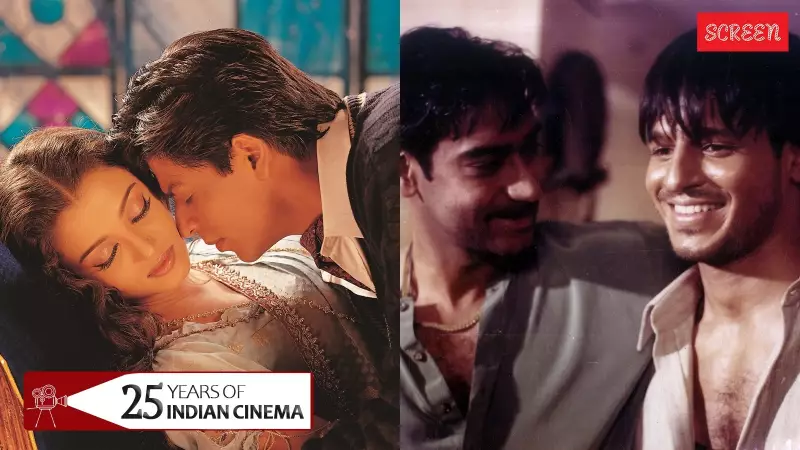
The year 2002 stands as a monumental chapter in Bollywood's history, marked by an extraordinary cinematic clash between two visionary directors and their diametrically opposed masterpieces. This wasn't merely about box office numbers; it was a battle of artistic philosophies that would define Indian cinema for years to come.
The Baroque Extravaganza: Devdas
Sanjay Leela Bhansali's Devdas emerged as a cinematic spectacle unlike anything Indian audiences had witnessed before. With a staggering budget of ₹50 crore (approximately $10 million at the time), the film redefined opulence in Indian cinema.
The film's grandeur was evident in every frame:
- Lavish sets that recreated early 20th-century Bengal in breathtaking detail
- Exquisite costumes featuring real gold and silver threadwork
- Memorable dance sequences choreographed by Saroj Khan and Birju Maharaj
- A stellar cast including Shah Rukh Khan, Madhuri Dixit, and Aishwarya Rai at their peak
Bhansali's interpretation of Sarat Chandra Chattopadhyay's classic novel was less about realism and more about creating a timeless fairy tale of tragic romance. The film's visual splendor earned it a nomination for Best Foreign Language Film at the BAFTA Awards and became India's official entry to the Oscars.
The Gritty Underworld Saga: Company
In stark contrast, Ram Gopal Varma's Company presented a raw, documentary-style exploration of Mumbai's underworld. Inspired by the real-life Dawood Ibrahim-Chhota Rajan saga, the film stripped away Bollywood's typical glamour to reveal a cold, brutal world of crime and betrayal.
What made Company revolutionary:
- Naturalistic performances from Ajay Devgn and Vivek Oberoi
- Handheld camera work that created a sense of immediacy and realism
- Minimal background score that enhanced the tense atmosphere
- Complex character dynamics exploring loyalty and ambition
Varma's film wasn't just entertainment; it was a chilling commentary on power structures within organized crime, earning critical acclaim for its authentic portrayal and narrative sophistication.
The Legacy of Two Cinematic Titans
What made 2002 particularly remarkable was how both films succeeded on their own terms. Devdas demonstrated that Indian cinema could compete with international productions in scale and visual magnificence, while Company proved that Bollywood could tackle serious, adult-oriented themes with sophistication.
The impact of these films continues to resonate:
- Bhansali's aesthetic influenced a generation of filmmakers toward more visually ambitious projects
- Varma's realistic approach paved the way for numerous gritty crime dramas that followed
- Both films expanded the definition of what commercial Hindi cinema could achieve
Two decades later, the Devdas-Company dichotomy remains a fascinating case study in how contrasting artistic visions can simultaneously thrive, each pushing Indian cinema forward in different directions. This extraordinary year proved that Bollywood had room for both the spectacular and the substantive, forever changing audience expectations and filmmaker ambitions.






